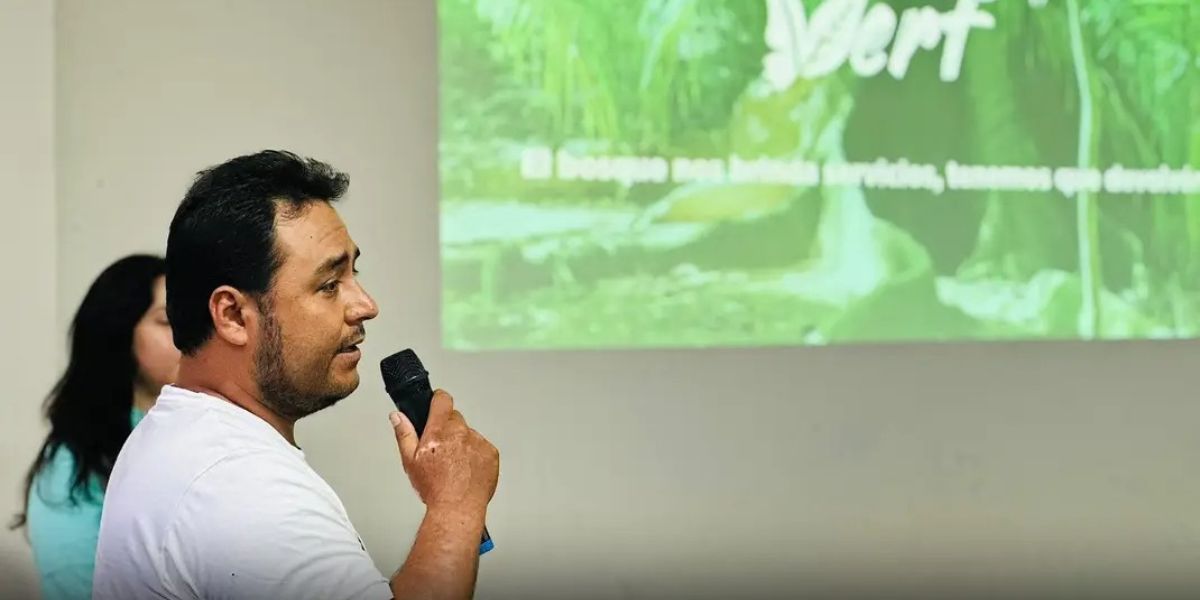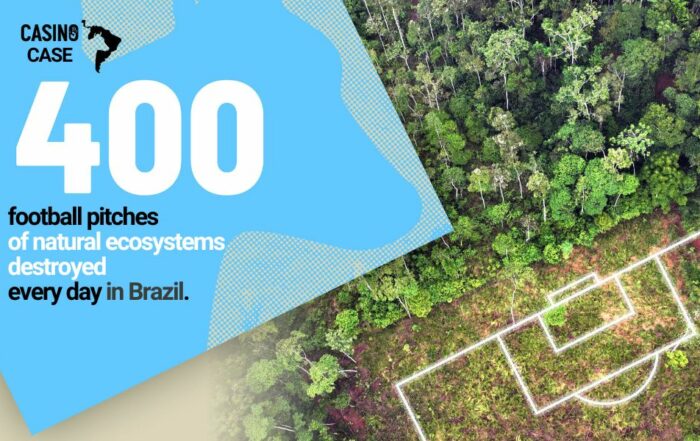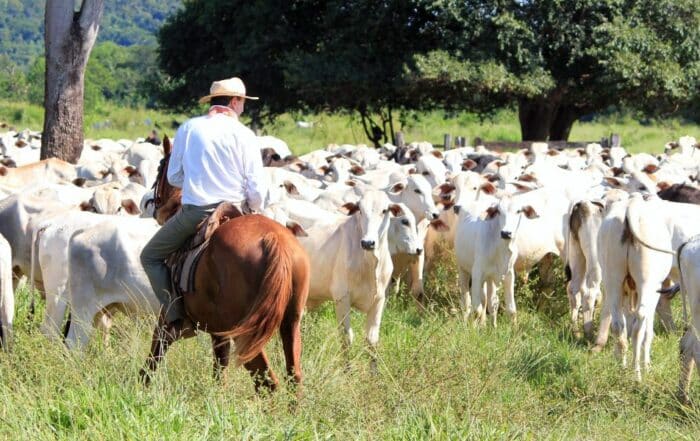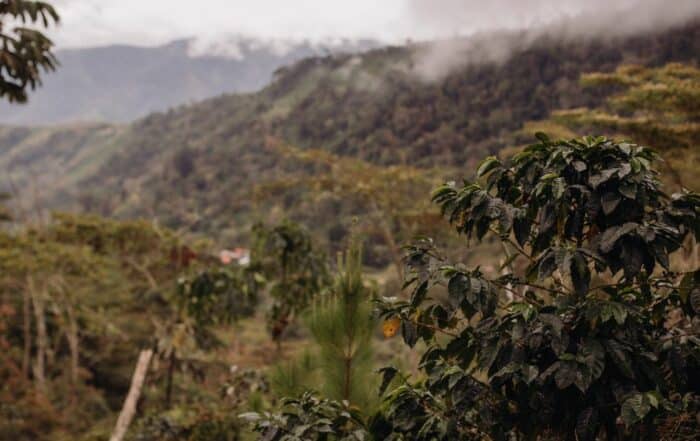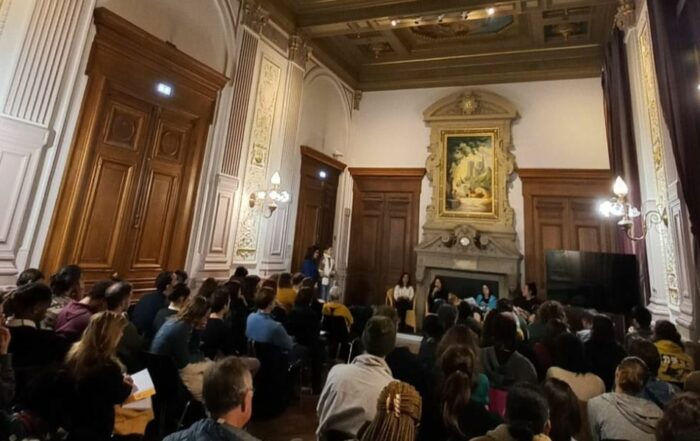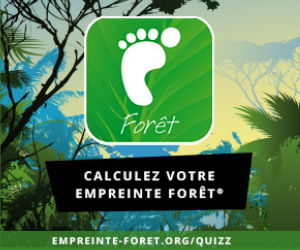In the heart of the Peruvian Amazon, natural and cultural wealth coexist in harmony. In this context, sustainable ecotourism is seen as a promising economic alternative in a dynamic region rich in nature-related activities. This approach helps to conserve forests while generating income for local communities, encouraging their active participation and respecting the environment.
Ecotourism is a strategic tool to strengthen collective conservation, territorial knowledge, and the cultural identity of Amazonian communities.
Participation in the International Forum “Green Innovation”
On May 9, 2025, we participated in the International Forum “Green Innovation for the Sustainable Tourism Development in the Huánuco Region”, organized to celebrate the 60th anniversary of Tingo María National Park. The event was coordinated by DIRCETUR and its strategic partners.The following topics were discussed at the forum:
We also participated in the panel on Participatory Management of Conservation, in order to present the ConBosque project.
The forum brought together 55 participants, including specialists, local authorities, and organizations involved in promoting responsible tourism in protected natural areas. Collaboration between institutions, local actors and organizations is essential to identify concrete opportunities and move toward a greener and more inclusive economy.
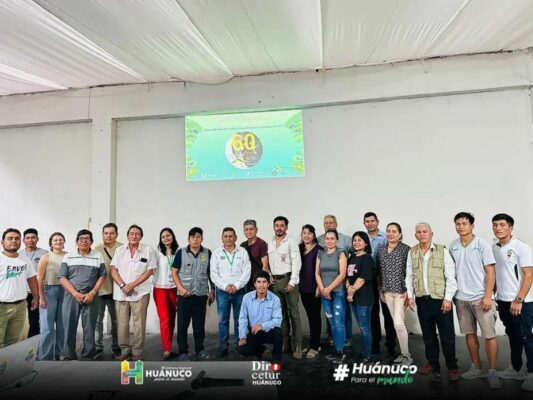
Presentation of the ConBosque Project at the International Forum “Green Innovation”
© Regional Directorate of Tourism, Huánuco
Next Steps
The following next steps are envisaged:
Envol Vert will continue to promote spaces for dialogue, training sessions, and collective action to move toward integrative forest management—working in collaboration with those who live in and protect the forests. Our participation helped highlight the value of ecotourism as a powerful opportunity to conserve forests and biodiversity, while promoting essential multi-actors dialogue to create partnerships and synergies.
In the heart of the Peruvian Amazon, natural and cultural wealth coexist in harmony. In this context, sustainable ecotourism is seen as a promising economic alternative in a dynamic region rich in nature-related activities. This approach helps to conserve forests while generating income for local communities, encouraging their active participation and respecting the environment.
Ecotourism is a strategic tool to strengthen collective conservation, territorial knowledge, and the cultural identity of Amazonian communities.
Participation in the International Forum “Green Innovation”
On May 9, 2025, we participated in the International Forum “Green Innovation for the Sustainable Tourism Development in the Huánuco Region”, organized to celebrate the 60th anniversary of Tingo María National Park. The event was coordinated by DIRCETUR and its strategic partners.The following topics were discussed at the forum:
We also participated in the panel on Participatory Management of Conservation, in order to present the ConBosque project.
The forum brought together 55 participants, including specialists, local authorities, and organizations involved in promoting responsible tourism in protected natural areas. Collaboration between institutions, local actors and organizations is essential to identify concrete opportunities and move toward a greener and more inclusive economy.

Presentation of the ConBosque Project at the International Forum “Green Innovation”
© Regional Directorate of Tourism, Huánuco
Next Steps
The following next steps are envisaged:
Envol Vert will continue to promote spaces for dialogue, training sessions, and collective action to move toward integrative forest management—working in collaboration with those who live in and protect the forests. Our participation helped highlight the value of ecotourism as a powerful opportunity to conserve forests and biodiversity, while promoting essential multi-actors dialogue to create partnerships and synergies.

